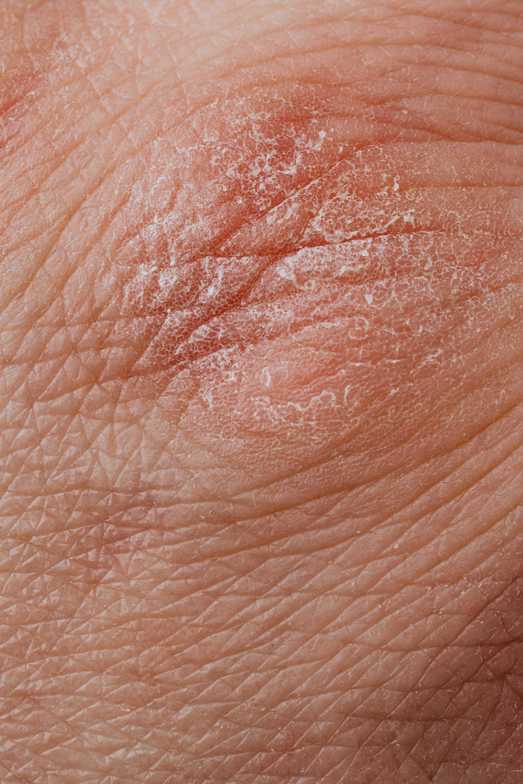
Introduction
Psoriasis, a chronic autoimmune skin condition, affects millions worldwide, causing discomfort and impacting quality of life. While traditional approaches focus on managing symptoms, Functional Medicine offers a comprehensive perspective that delves into the root causes and individualized treatments. This article explores the pathophysiology of psoriasis, recent research findings, and emerging treatments within the Functional Medicine framework.
Understanding Psoriasis: A Functional Medicine Perspective
Functional Medicine views the body as an interconnected system, where imbalances in one area can trigger health issues elsewhere. Psoriasis is seen as a manifestation of systemic inflammation and immune dysregulation. Key aspects of the Functional Medicine view of psoriasis include:
- Genetic Predisposition: Genetic factors play a role in psoriasis, but triggers such as stress, infections, and environmental factors activate the condition.
- Gut-Immune Connection: The gut plays a crucial role in immune function. Dysbiosis (imbalanced gut microbiota) and increased intestinal permeability (leaky gut) can contribute to psoriasis.
- Chronic Inflammation: Psoriasis is characterized by systemic inflammation. Addressing inflammation through lifestyle, diet, and supplements is a cornerstone of the Functional Medicine approach.
- Nutritional Imbalances: Nutrient deficiencies, especially vitamins D and A, omega-3 fatty acids, and antioxidants, can exacerbate psoriasis symptoms.
- Stress and Emotional Health: Stress triggers immune responses that can worsen psoriasis. Emotional well-being and stress management are integral in Functional Medicine.
Functional Medicine Approach to Psoriasis
- Personalized Nutrition: Individualized diets emphasize anti-inflammatory foods, such as fruits, vegetables, healthy fats, and lean proteins. Avoiding trigger foods and allergens is crucial.
- Gut Health Restoration: Probiotics and prebiotics support a healthy gut microbiome. Healing leaky gut through diet and supplements can improve psoriasis symptoms.
- Lifestyle Modifications: Stress reduction techniques, exercise, and adequate sleep play vital roles in managing inflammation and immune function.
- Supplements: Omega-3 fatty acids, vitamin D, curcumin, and quercetin have shown promise in reducing inflammation and improving psoriasis symptoms.
- Functional Testing: Comprehensive testing assesses gut health, nutrient deficiencies, and genetic factors to create tailored treatment plans.
Latest Research Insights
- Immune Modulation: Recent studies explore biologics that target specific immune pathways implicated in psoriasis, leading to more targeted and effective treatments.
- Microbiome Connections: Research highlights the gut-skin axis, indicating that restoring gut health can positively impact psoriasis symptoms.
- Epigenetic Factors: Epigenetic modifications due to environmental factors are gaining attention, offering potential avenues for personalized treatment.
- Lifestyle Interventions: Studies emphasize the role of lifestyle changes in reducing inflammation and improving psoriasis severity.
Innovative Treatments within Functional Medicine
- Low-Level Laser Therapy: Non-invasive laser therapy shows promise in reducing inflammation and promoting skin healing.
- Nutrigenomics: Tailoring diets based on genetic predispositions is an emerging trend within Functional Medicine.
- Mind-Body Therapies: Techniques like mindfulness, meditation, and yoga address stress, impacting immune responses and psoriasis symptoms.
- Personalized Biologics: Advancements in biologic therapies offer more targeted approaches, minimizing side effects.
Conclusion
Functional Medicine's approach to psoriasis transcends traditional symptom management, seeking to uncover the underlying factors contributing to the condition. By addressing systemic inflammation, immune dysregulation, and individualized triggers, Functional Medicine offers innovative and personalized treatments that go beyond topical solutions. The evolving research landscape sheds light on the complex interplay between genetics, immune function, and environmental factors in psoriasis. Embracing both the latest research and time-honored holistic practices, Functional Medicine empowers individuals to take control of their psoriasis journey, promoting long-term healing and improved quality of life. As with any medical approach, consulting a qualified Functional Medicine practitioner ensures a comprehensive and tailored treatment plan that considers the unique needs of each individual.
Dr. Mariem Idrissi
Contact Me



